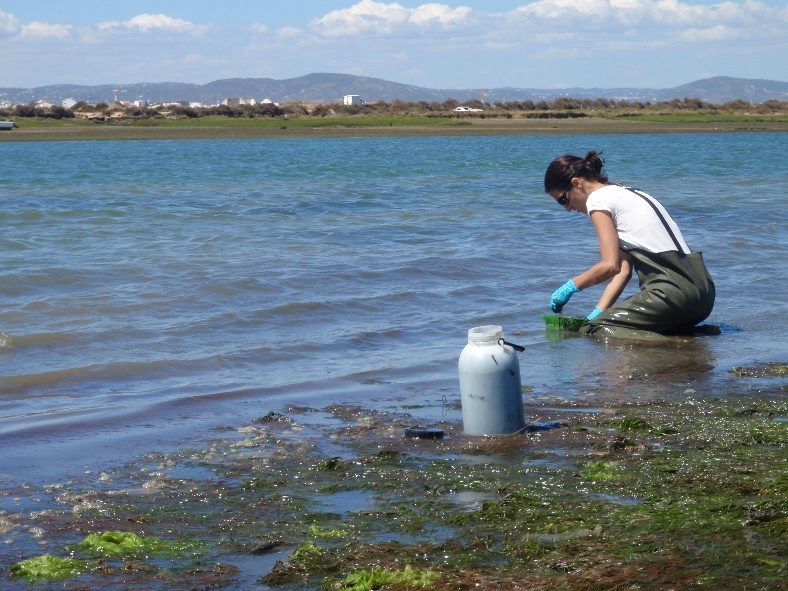Dr. Ana Alexandre, a postdoc at Centro de Ciencias do Mar at University of Algarve, presents in this Insights the findings of she and her colleagues on her latest paper titled, “Ocean warming increases the nitrogen demand and the uptake of organic nitrogen of the globally distributed seagrass Zostera marina”.
About the research

Ocean warming is expected to affect marine organisms in very different ways. Seagrasses are marine plants that form the basis of highly productive ecosystems. Such productivity is achieved through high rates of nutrient acquisition. Nitrogen is a key nutrient for seagrass growth, which these plants incorporate both through their leaves and roots as inorganic and organic nitrogen. Seagrasses typically show a preference for inorganic nitrogen, usually ammonium, but it is not known how this preference may shift with temperature. Warming may affect seagrasses directly by altering their rates of nitrogen acquisition or indirectly through changes in the availability of the different nitrogen forms caused by the effect of temperature on the microbial mineralisation rates. In colder environments, the regeneration rate of inorganic nitrogen through microbial processes is expected to be lower while the availability of organic nitrogen is expected to be higher. In this study, we investigated how ocean warming may affect the nitrogen acquisition of the globally widespread seagrass Zostera marina. We used an innovative approach that combined field observations of the rates of nitrogen acquisition of the Z. marina in three sites along its latitudinal range (Iceland, United Kingdom and Portugal) with the species’ acquisition responses to temperature manipulation obtained from laboratory experiments. Our results indicate that warming increases the total acquisition of nitrogen of the seagrass and that the uptake of organic nitrogen is higher at warmer sites. Because the uptake of organic nitrogen by microbes also increases with temperature, warming will potentially enhance the competition for this nitrogen source between Z. marina and its associated microbial communities. Our study shows that Z. marina, and probably other seagrass species, can be winners under global change conditions of increased temperature and CO2, as higher CO2 levels are known to increase the photosynthetic production of seagrasses, which may result in higher growth that will not be limited by their nitrogen acquisition capacity.
It was really amazing to sample seagrasses in such different environments. The sampling in Iceland was especially challenging because I had to hike down the fjord to reach the plants in the water while carrying all the sampling materials, but the breathtaking landscape eased the harshness of sampling in such a cold water site. Another exciting point of this study was to establish collaborations with the different partners, which made this whole study a very enriching experience.
About the author

I have been studying seagrasses since 2001, as part of my graduation thesis. At that time, I felt there were so many things to be discovered about the ecology and physiology of seagrasses that I decided to pursuit my studies on this topic. I studied the impact of clam harvesting on seagrass reproduction in my Master thesis and provided answers to several important questions regarding the nutritional strategy of seagrasses as part of my PhD thesis. During the last years, I have joined many research teams and had the opportunity to work in diversified topics such as environmental monitoring and management, restoration of seagrass habitats, ecosystem metabolism, ocean acidification, ecology of invasive macroalgae and their competition with seagrasses.
The study just published in Functional Ecology was conducted as part of my postdoctoral research at the Centre of Marine Sciences (CCMAR) in the University of Algarve, Portugal, where I have been focused in understanding the effects of climate change on the nutritional strategy of seagrasses. Within this topic, and in collaboration with Professor Davey Jones and his team at the School of Natural Sciences, Bangor University, I got particularly interested in exploring the role of dissolved organic nitrogen, a relevant but yet poorly investigated form of nitrogen for seagrass nutrition, and how it may be affected by climate change.
